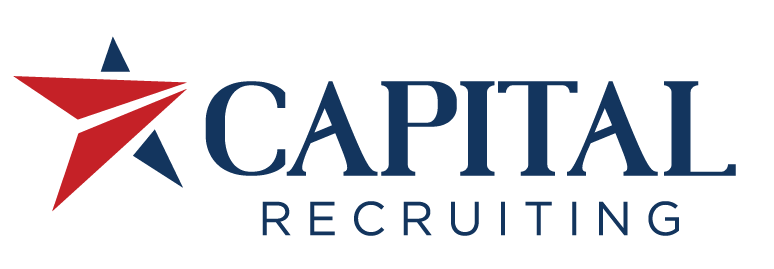
How to Answer Questions in an Interview in the IT Industry
February 25, 2021
Company Blogs Boost Communication at a Workplace
March 5, 2021Learning how to answer questions in an interview is an essential skill for those of you looking to land a high-paying job! Most jobs will follow a specific time-tested format for interviews so it’s possible to prepare. In fact, they expect you to prepare thoroughly. However, you can also expect a few twists and turns along the way because some companies like to see how applicants answer under pressure.
With that said, we’ll look at some of the preparation methods that will help you learn how to answer questions in an interview and impress recruiters!
Why is Interview Preparation so Important?
Preparation vastly improves the chances of getting a job offer. It shows that you hold the position in high enough esteem to prepare in advance. In fact, we’ve found that nearly two-thirds of job applicants will spend a day preparing for their interview. You must be one of that percentile because it gives you an edge. How often do you think those who don’t prepare get hired? I can assure you that it’s very low.
While there are numerous ways to prepare for an interview, answering questions is going to take priority. Now we’ll look at some of the most important tips that will help you prepare and get an edge.
Thoroughly Research the Company

The first step is to research the company and learn as much as you can about them. This is an essential part of the interview process.
Start by looking at their website. Learn the company mission and its values so that you’re able to communicate your understanding of it during the interview. However, I recommend that you take it a step further and look up reviews for that company too. See what customers and former employees have to say.
You might also try reaching out to your LinkedIn network to see if anyone has experience with the company. If something concerns you, don’t be afraid to ask about it in the interview.
Research the Job Itself
Now that you understand the company and its mission, take the time to analyze the job itself. Brand the description into your head and highlight the top skills on your resume that relate to it. This will help you answer all of the job-specific questions like “Why do you think you’re a good fit for this job?”
I recommend that you create a written list of the qualities and skills that are required from the job that you’re applying to. Practice speaking about those skills so that you’re ready for unexpected questions. That’s the perfect way to transition into the next tip.
Practice Your Interviewing Skills Aloud
Practice so you will know how to answer questions in an interview. You already have all of the company values and the job skills laid out so write down a series of questions that you might be asked. Then prepare your answers. Almost all mobile devices have a voice recorder app, now would be a great time to use it!
You can also ask a friend or family member to interview you so you get experience talking to a real person. A big mistake that we often see is that applicants will study hard and do all of their research, but they never practiced the actual interview itself. You don’t want to be stumbling over words or start to sweat when you’re asked basic questions.
Interview Etiquette is a Must
Learning how to answer questions in an interview doesn’t stop at words alone. How you carry yourself says just as much about you to an interviewer as the answers you provide.
The first rule is to always be polite. Never, under any circumstances, be rude. This includes a rude attitude toward previous employers. Always be pleasant and enthusiastic. Here are some additional tips:
Pay close attention to your body language.
Greet the interviewer with a firm handshake.
When answering questions, make eye contact.
Always listen to everything the interviewer says.
Be excited about the job.
All of these things should be worked on during all of your practice interviews.
Pay Close Attention and Ask Questions
Another mistake that is made quite often is that the interview becomes one way and the applicant doesn’t ask any questions. During a job interview, listening is essential and you communicate that you’re listening by asking questions. Interviews that have two-way communication go much better than a simple Q&A session.
When answering questions, be sure that your answers include your qualifications and skillset. Also, use an active tone rather than a passive one. For example, instead of saying “I would” say “I will.”
The key is to build a relationship with the person conducting the interview so not only will you be answering questions, you’ll be asking them. You can write these ahead of time if you like. It shows them that you prepared, which means you take the job seriously.
Additional Tips for Acing an Interview
Answering questions is not the sole purpose of a job interview. The overall goal of an employer is to gauge whether you are a right fit for the position. So here are some additional tips that you must follow for your interview.
Dress for Success

There’s an old business adage that recommends people dress for the job they want. I know it sounds silly, but the way you dress plays a huge role in your mindset. Leaders understand this so they will be paying attention to what you wear to the interview.
Plan this attire in advance and have it all laid out and ready on the day of the interview. Make sure your first impression is a great one. I’m not saying that you have to wear a suit and tie when interviewing for a job in the IT industry. But it’s important to come into the interview looking tidy and well-groomed.
Plan your Route Ahead of Time
If the job interview is in-person, then plan the route ahead of time. You absolutely do not want to be late to your interview. That sets a really bad tone. Apps like Google Maps, WAZE, and Apple Maps will help to plan and find alternative routes.
Some people will do a practice run a day or two before the interview so that they know exactly how to reach the location. This isn’t a requirement and in most cases you won’t need to practice, but it never hurts to be safe.
Finally, leave early. It’s always better to arrive too early than to be late.
Know What to Bring
Bring extra copies of your resume along with a list of references and questions that you plan to ask the interviewer. It’s also highly encouraged that you bring a blank notebook so that you can take notes.
Basically, only bring yourself and anything related to the job interview. Leave everything else in your car.
How to Answer Questions in an Interview in the IT Industry
Everything you’ve read can be used universally across any industry but the key takeaway for IT professionals is to understand what skills you possess that make you the right fit. This industry is all about possessing the technical skills to get the job done. Yes, professionalism is still important but the interviewer is going to be probing you to gauge your technical prowess.




